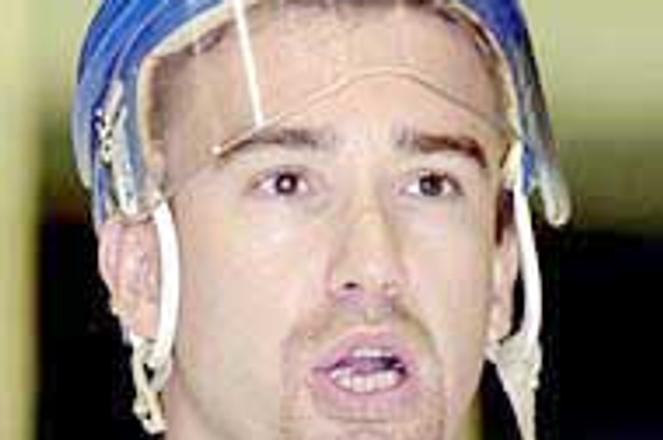Centre Ziggy Pálffyphoto: TASR
COACH Ján Filc of the Slovak Olympic ice hockey team swears the country's fans will have more to cheer about than four years ago, when the Slovak squad didn't even make it past the qualifying round.
"If we don't advance to the main round of the hockey competition I'll be very disappointed," the coach says, adding he's left 12-13 places open on the team roster to be filled by National Hockey League players.
"At the 1998 Olympics in Nagano, the coach left only two free places," says Žigmund Pálffy, a 29-year-old Slovak centre with the Los Angeles Kings. "The rest of us from the NHL just sat in the audience. After we lost, we packed our belongings and flew back to America. This time we're being more cautious."
Unlike some of its peers, Slovakia must play a three-game qualifying round to make it into the final round of eight teams, a round it was accused of taking too lightly in Nagano. The Slovaks face Germany on February 9, Latvia the next day and Austria on February 12.
The problem is that while the NHL takes a break to allow its players to compete in the Olympic hockey main round, the pro-league schedule is in full spate during the preliminaries. Most Slovak NHL stars thus find they have to wait for an off day for their pro clubs to be able to skate for their country.
This means that Pálffy, the top scorer for Slovakia at Nagano 1994 and a perennial NHL star, will be allowed to play with teammate Lubo Visnovský only against Latvia on February 10 - the day LA doesn't play.
Coach ján Filcphoto: TASR
While Pálffy will not suit up for Slovakia for the opener against Germany, nine other Slovak NHLers are idle that night and may be made available, including sophomore star winger (45 points in 50 games) Marián Gaborik of the Minnesota Wild and Zdeno Ciger of Tampa Bay.
With NHL Commissioner Gary Bettman having decided to leave decisions on releasing the Slovaks up to individual teams, some clubs predictably have banned early departures because of the effect an absence by a top player could have on playoff standings.
Miro Šatan, top scorer for the Buffalo Sabres, was one of the first to be told he couldn't go, and appeared upset by the decision. The Ottawa Senators, too, have told defenceman Zdeno Chára and forward Marián Hossa they are needed in the line up.
On the other hand, perhaps due to the frantic lobbying of Slovak Olympic team general manager Peter Štastný, Wayne Greztky's Phoenix Coyotes have made a trio of Slovak NHLers available for all three games.
Filc says the Olympic committee should put the bar at the same level for all teams, and argues that Slovakia always places among the top sides when it has free access to its best players.
"We belong among the best seven or eight hockey countries in the world," he said. "The successes of our players in the NHL and our junior teams, or our silver medal from the World Hockey Champs in St. Petersburg in 2000 - that's all proof that Slovak hockey means something."
Slovakia won four bronze and four silver Olympic hockey medals as part of former Czechoslovakia, but has yet to register a medal as an independent nation. Its best Olympic finish was sixth place in 1994, after a narrow 3-2 loss in overtime to Russia.
"I still get goose bumps thinking about the chance we had when the score was 2-2," says Štastný.
But the shiniest hockey memory for most Slovaks is the St. Petersburg silver, a 5-3 loss in the finals to the Czechs that drew 35,000 people to watch the game on the capital's main square.
After two warm up games against Switzerland, and two wins, the Slovak team was cut down to about 10 skaters from European clubs, and that contingent will be slashed to five or six if Slovakia makes it to the main round.
Filc says he is aware the constantly changing roster might prevent a team atmosphere from forming, and could drive a rift between the European players and the NHLers.
"But I ask you, is our mission not to put our best players at this moment on the ice to face the best our competitors can offer? There's a lot of pressure on our hockey programme in Slovakia. And whether someone has an NHL contract or not has to be a certain objective measure of his quality as a player."
If the Slovak hockey team wins gold, the Slovak Olympic Committee has promised to shell out Sk13.8 million, or Sk600,000 ($12,000) a head.
"We don't have the money yet," said committee chairman František Chmelár. "So if they win, our hockey players will put us in a real financial bind.
"But that would be a nice position to be in."


